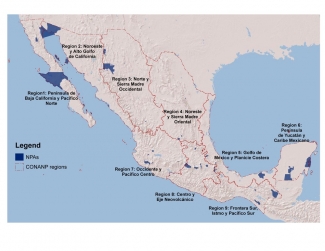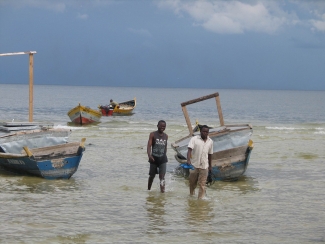FILTER
Displaying 2681 - 2690 of 4067 publications
This paper uses the National Energy Survey Data for Kenya 2009 to investigate the main determinants of household energy conservation and savings, exploiting discrete choice and Tobit models. It…
| EfD Discussion Paper | KenyaUsing a mathematical programming model, this study estimates the potential biomass supply from crop residues in China at various exogenously-given biomass prices and identified the areas that are…
| EfD Discussion Paper | ChinaThe development of climate policy in the United States mirrors international developments, with efforts to initiate a coordinated approach giving way to jurisdictions separately taking actions. The…
| Discussion Paper |Although developing countries have established scores of new protected areas over the past three decades, they often amount to little more than “paper parks” that are chronically short of the…
| Peer Reviewed | Central America and MexicoLack of progress in global climate negotiations has led scholars to reconsider polycentric approaches to climate policy. Several examples of subglobal mechanisms to reduce greenhouse-gas emissions…
| Peer Reviewed |Biodiversity plays a key role in sustaining the functioning of ecosystems and thus in the provision of ecosystem services. A great deal of biodiversity is to be found in private forests, thus the way…
| Other Publications | SwedenWe examine the welfare implications of the Tanzanian fisheries boom resulting from Lake Victoria Nile perch exports during 1993–2008. In the literature, there are two opposing views on the effect of…
| Peer Reviewed | TanzaniaObjectives of tradable permit programs are often broader than internalizing an externality and improving economic efficiency. Many programs are designed to accommodate community, cultural, and other…
| Discussion Paper |This paper uses the water-reallocation scheme created within the National Water Act (1998) to analyze the impacts of water policy on farm livelihoods in South Africa. Based on one of the most water…
| Peer Reviewed | South AfricaThe study presented here considers the relative efficiency of planting tobacco and maize in the tobacco-producing Tabora region of Tanzania. The study used a 2013 survey that was conducted among…
| Peer Reviewed | Tanzania
